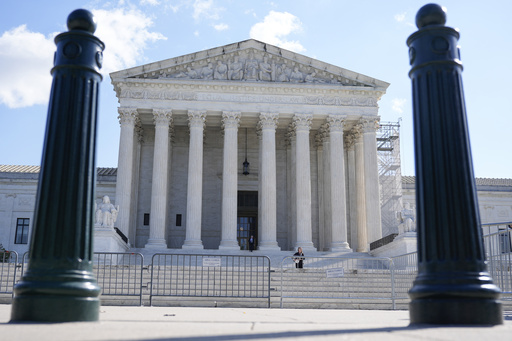
The U.S. Supreme Court announced on Wednesday that it will review South Carolina’s decision to terminate Medicaid funding for Planned Parenthood, representing the most recent significant case related to abortion following the court’s overturning of Roe v. Wade.
The high court has agreed to consider the state’s appeal that challenges a ruling from a lower court regarding the rights of Medicaid patients to select their own qualified healthcare providers. The hearing for the case is set to take place in the upcoming spring.
In 2018, South Carolina attempted to stop Medicaid funding for Planned Parenthood. Despite the organization utilizing these funds mainly for family planning services as opposed to abortions, Governor Henry McMaster claimed that any public funds directed towards the organization contributed to the financing of abortion services.
Federal Medicaid guidelines permit funding for abortions only in specific circumstances, specifically when a woman’s life is endangered or in cases of rape or incest. Planned Parenthood has previously indicated that in South Carolina, it receives less than $100,000, reflecting a broader trend among several conservative-leaning states aiming to limit or eliminate funding for the largest abortion provider in the United States.
The 4th U.S. Circuit Court of Appeals intervened after Planned Parenthood and a patient filed a challenge, asserting that federal law grants Medicaid patients the right to choose their providers and to sue if necessary.
In addition to abortion services, Planned Parenthood offers a range of medical services, including birth control, screenings for cancer, and testing for sexually transmitted diseases. Its two clinics in South Carolina cater to hundreds of Medicaid patients annually as part of a federal-state initiative aimed at providing health services to low-income populations.
Currently, South Carolina has imposed a ban on abortions around the six-week mark of pregnancy, or when a fetal heartbeat is detected, with certain exceptions. Following the Supreme Court’s decision to revoke constitutional protections for abortion in 2022, many Republican-led states have moved to tighten abortion regulations.
John Bursch, an attorney from Alliance Defending Freedom representing South Carolina, argued that the state is entitled to allocate its limited resources towards funding life-affirming healthcare. He noted that other appellate courts have reached conclusions differing from that of the 4th Circuit, underscoring the importance of the Supreme Court’s involvement in this matter.
Planned Parenthood has actively sought to discourage the court from reviewing the case, asserting in legal documents that its services are crucial for low-income individuals and that the law explicitly empowers patients to challenge any cuts to their access.
“This situation epitomizes political maneuvering at its worst,” stated Jenny Black, the president and CEO of Planned Parenthood South Atlantic, which manages the clinics in South Carolina.
She further emphasized, “Everyone deserves access to quality, affordable healthcare from a provider they can trust.”
